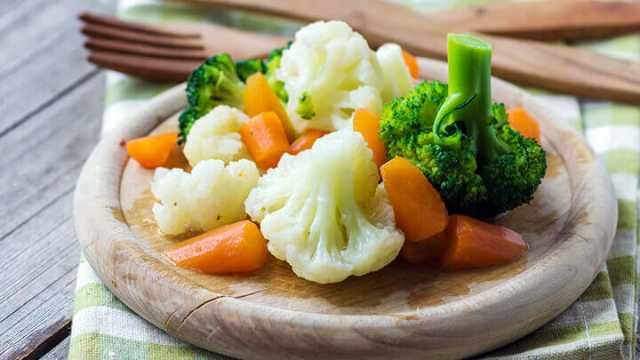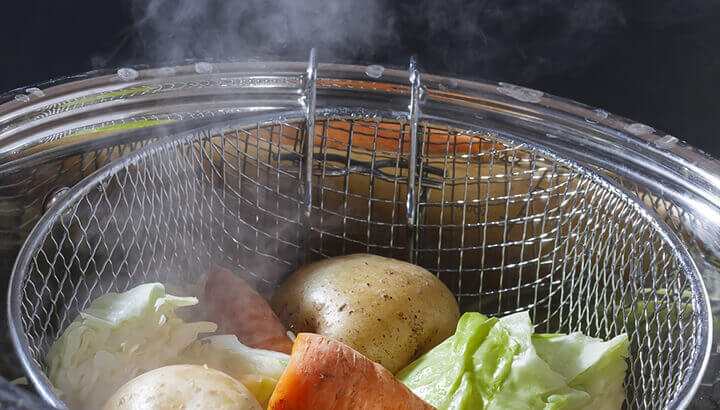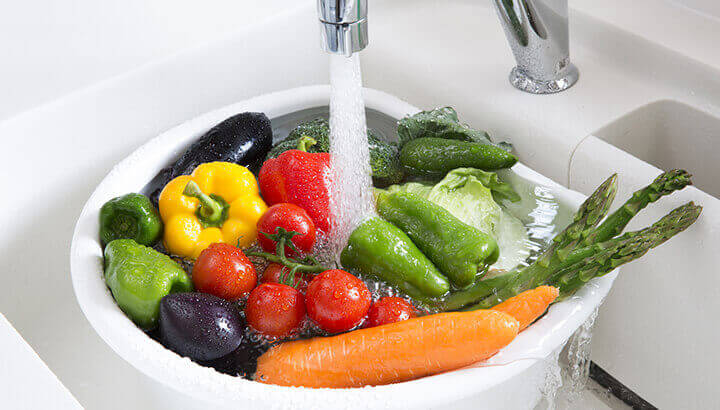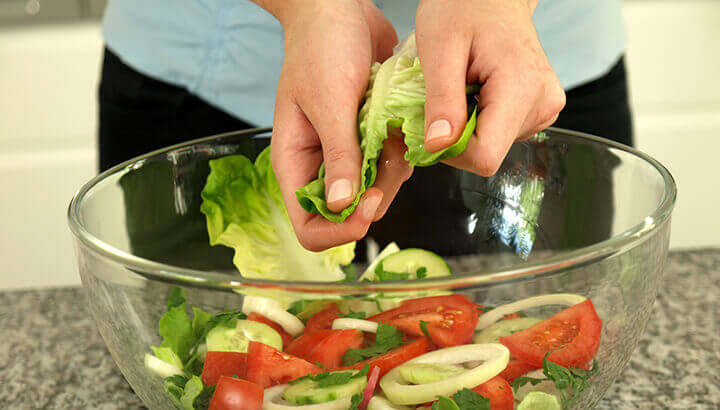
“Eat your vegetables, or there won’t be dessert!” You may have heard that warning a few times when you were a child sitting in front of that pile of soggy looking vegetables. You may even use the same line with your own kids. After all, you know how important vegetables are for a healthy diet.
Vegetables are the carbohydrates of a balanced meal. They provide vitamins, minerals and fiber. Properly prepared, vegetables can be so much more than a boring pile of green. Your kids may still disagree, but stick to your guns. Research suggests that it takes up to 10 times of trying a food until you develop a taste for it.
However, there are a few things you can get wrong that may turn you into a vegetable hater for life. Preparing them wrong may also make your veggies less nutritious without you even knowing it. Read on for a list of things that you never, ever want to do to your vegetables… and a few ideas of what to do instead.
Don’t boil vegetables
Boiling vegetables practically makes it unnecessary to eat them at all. Most of the nutrients will leach into the water, which you’ll then throw away. Cooking, regardless what method you use, will destroy some nutrients, but it also makes others more bioavailable. For this reason, it makes sense to both eat vegetables raw and cook them at other times.
… Steam or roast vegetables instead
Steaming and roasting are easiest on the nutrients. To steam vegetables, insert a basket into a cooking pan and fill the pan with an inch of water. Add your vegetables, cover and steam at medium heat until they reach desired texture.

For roasting, preheat your oven to 400°F. Line a cookie sheet with parchment and place cut up vegetables on top in a single layer. You may choose to drizzle some oil and seasonings on them first or wait until after they’re roasted to do so. Roast your vegetables for 20 to 30 minutes.
Don’t overcook them
While steaming is a good and safe method to cook your vegetables, you can still overcook them. You’ll notice they’re overcooked when they start losing their color. They will also turn so soggy that you barely have to chew them anymore. Veggies should be cooked “al dente,” which means cooking them firm to the bite. Of course, you may like them a little bit softer or a little bit harder. Just be sure they don’t turn into a blob.
Don’t store them for too long
Every additional day you store vegetables will result in more nutrient loss. The sooner you eat vegetables after purchasing, the better. If you create a meal plan, make sure you do not purchase too many vegetables that will just sit in the refrigerator and be thrown away.
Also, frozen vegetables haven’t been super popular. But the truth is, shock freezing them actually preserves most of the nutrients. So, if you’re busy or just don’t care to create meal plans, frozen vegetables may be the way for you to go.
Don’t eat vegetables without washing them first

Unwashed vegetables contain toxins from being sprayed with pesticides. They are also covered with wax or other substances to keep them from spoiling, which can cause inflammation and diarrhea. Plus, if you are exposed to these toxins and chemicals, you are more prone to disease. So wash, wash, wash all of your vegetables, including those that are organically grown.
Did you know there are also a few things that can actually make the nutrient content bigger and more digestible for the body? Read on for a list of simple things to bring out the best in your veggies.
Wait to eat your potatoes
Potatoes are one of the most popular veggies in the United States and around the world. We eat them baked, fried, mashed and even make them into a salad. Potatoes contain calcium, magnesium, vitamin C, iron and vitamin B6. In order to remove some of the starch, let potatoes sit in cold water for a few hours. If you’re looking to keep your blood glucose more level, do this every time you use potatoes in a recipe.
Cook those tomatoes
Tomatoes are similarly popular to potatoes. Declaring ketchup a vegetable may be a bit of a stretch, but as part of a delicious spaghetti sauce, tomatoes can be quite good for you. The lycopene in tomatoes is known to prevent heart disease and some cancers. Cooking them at high temperatures and combining them with some fat, however, increases lycopene transport into the bloodstream. So cook away!
Eat your carrots with some fat
Carrots are an awesome snack food, beloved by adults and kids alike. They are rich in beta-carotene which is converted into vitamin A. However, chowing away on carrots all day long won’t do you any good if vitamin A is what you’re going for, as vitamin A is a fat-soluble vitamin. This means it needs fat to be properly absorbed. Eating carrots with a nut butter or another source of fat will do the trick.
Tear up lettuce in advance

If you’re a fan of green salad, you probably have a head or two of lettuce sitting in your fridge right now. In the future, you may consider tearing that lettuce apart before you store it in the fridge. Tearing lettuce activates a self-protection mechanism, which releases antioxidant compounds — and our bodies just happen to love it. Ideally, you’ll mix up your lettuce. Eat some green and some red, as they have different antioxidants. Green lettuce has slower acting compounds, while red leaf lettuce has the faster acting compounds.
Eat leafy greens raw
While cooking can certainly help bring out the best in some vegetables, others should be eaten raw at least some of the time. Foods like chard, kale, beet greens, spinach and collard greens are high in chlorophyll, an antioxidant necessary for the body. They also contain fiber and enzymes, and vitamins C and E. You’ll get the highest possible nutrient content and eating the vegetables raw fills your stomach and keeps you fuller for longer than if you cook them.
Veggies are a key part of a balanced diet. It’s important to pay special attention to our dietary needs — even the nutrient content of organic vegetables has decreased in the past 50 years due to overfarming, pesticides and fertilizers. This list of dos and don’ts, while not comprehensive, will give you some good pointers so you can enjoy your vegetables to the fullest.
— Ute Mitchell

